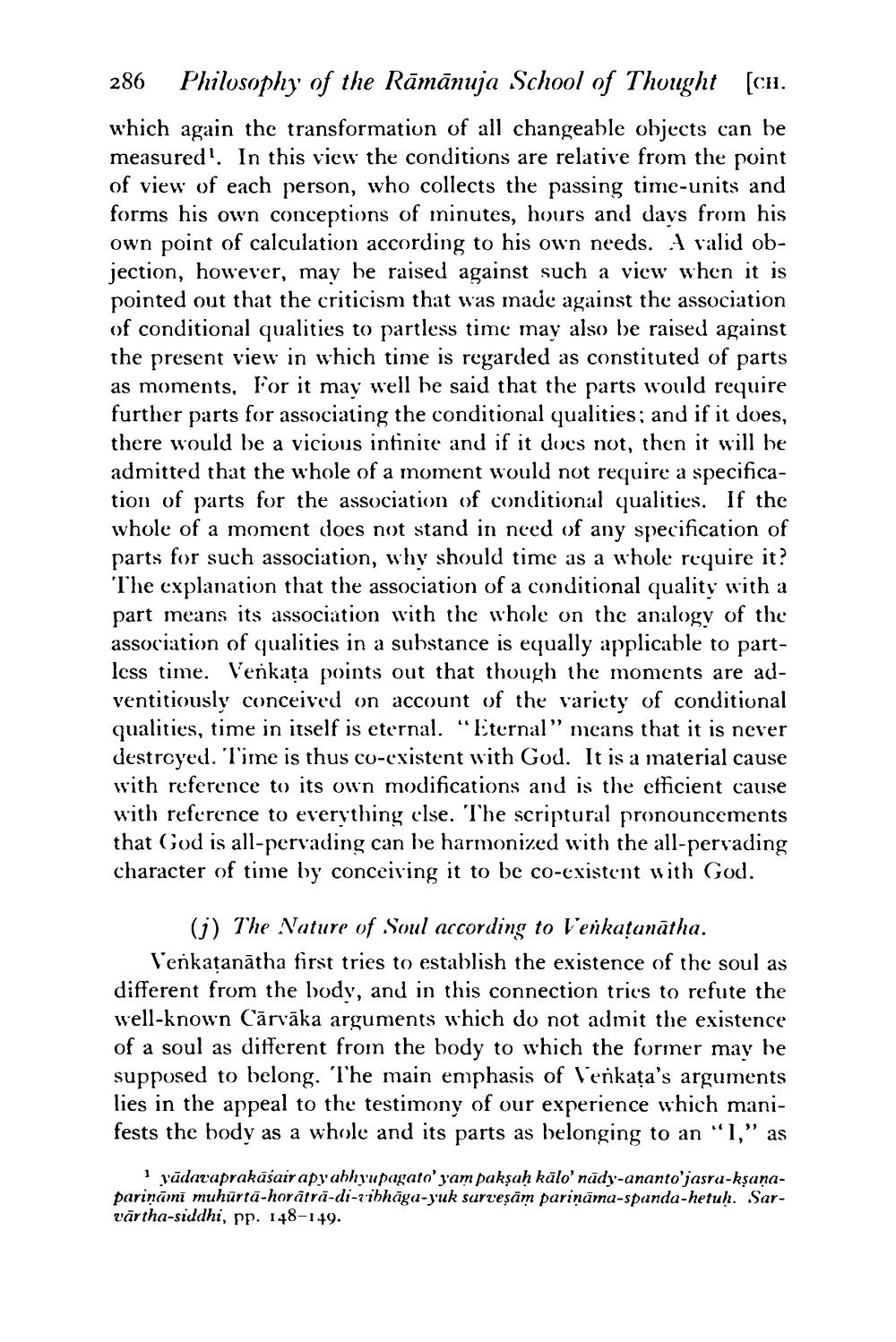________________
286
Philosophy of the Rāmānuja School of Thought [CH.
which again the transformation of all changeable objects can be measured'. In this view the conditions are relative from the point of view of each person, who collects the passing time-units and forms his own conceptions of minutes, hours and days from his own point of calculation according to his own needs. A valid objection, however, may be raised against such a view when it is pointed out that the criticism that was made against the association of conditional qualities to partless time may also be raised against the present view in which time is regarded as constituted of parts as moments, For it may well be said that the parts would require further parts for associating the conditional qualities; and if it does, there would be a vicious infinite and if it does not, then it will be admitted that the whole of a moment would not require a specification of parts for the association of conditional qualities. If the whole of a moment does not stand in need of any specification of parts for such association, why should time as a whole require it? The explanation that the association of a conditional quality with a part means its association with the whole on the analogy of the association of qualities in a substance is equally applicable to partless time. Venkata points out that though the moments are adventitiously conceived on account of the variety of conditional qualities, time in itself is eternal. "Eternal" means that it is never destroyed. Time is thus co-existent with God. It is a material cause with reference to its own modifications and is the efficient cause with reference to everything else. The scriptural pronouncements that God is all-pervading can be harmonized with the all-pervading character of time by conceiving it to be co-existent with God.
(j) The Nature of Soul according to Venkatanatha.
Venkatanatha first tries to establish the existence of the soul as different from the body, and in this connection tries to refute the well-known Cārvāka arguments which do not admit the existence of a soul as different from the body to which the former may be supposed to belong. The main emphasis of Venkata's arguments lies in the appeal to the testimony of our experience which manifests the body as a whole and its parts as belonging to an "1," as
1 yādavaprakāśair apy abhyupagato' yam pakṣaḥ kālo' nādy-ananto’jasra-kṣaṇapariņāmī muhūrtā-horātrā-di-vibhāga-yuk sarveṣām parināma-spanda-hetuḥ. Sarvärtha-siddhi, pp. 148-149.




